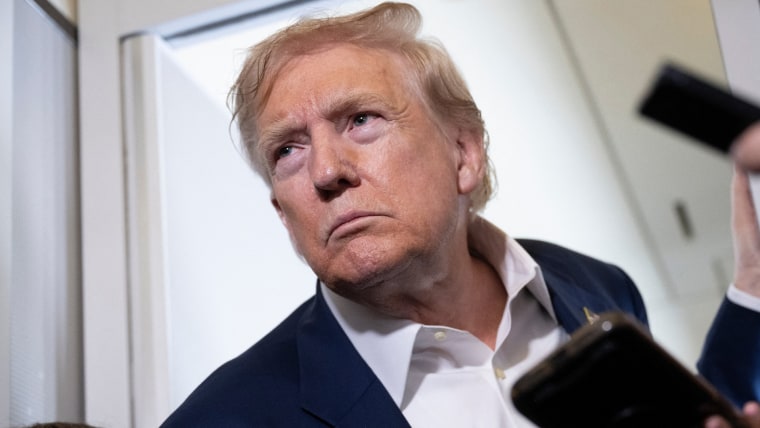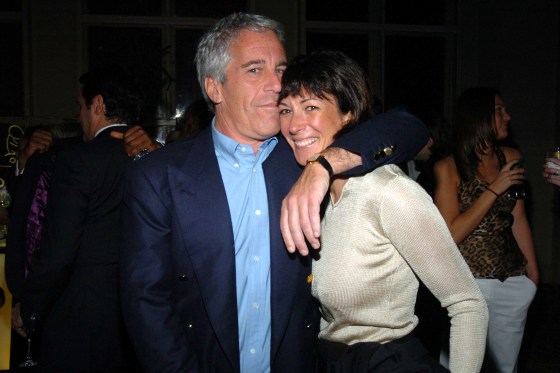The Justice Department laid out further arguments Tuesday night for the release of grand jury transcripts in Jeffrey Epstein's and Ghislaine Maxwell's criminal cases, arguing that its request was "consistent with increasing calls for additional disclosures in this matter."
The filing comes after two judges requested that the Justice Department submit further information about the government's request this month to unseal grand jury transcripts.
Follow live politics coverage here
Separately, Democrats on the Senate Homeland Security and Governmental Affairs Committee invoked a rarely used law Wednesday to request that the government provide them with files related to Epstein, the convicted sex offender who died in jail in 2019, by mid-August.

In the Justice Department filing, Attorney General Pam Bondi and Deputy Attorney General Todd Blanche emphasized public interest in Epstein.
"While the Government acknowledges the extraordinary nature of the instant request, it is also (like the Court) faced with a broad public interest in the underlying proceedings," they wrote.
They also referred to public pressure for further transparency surrounding the government's handling of files related to Epstein. The Epstein case has sparked rare criticism of the administration from President Donald Trump's own base, which has called for the release of the files.
"Beyond that, there is abundant public interest in the investigative work conducted by the Department of Justice and the Federal Bureau of Investigation into those crimes," the filing continued.
Bondi and Blanche pointed to Epstein's being unable to oppose the disclosure of grand jury materials because he "has passed and therefore cannot assert a position." They also referred to Maxwell's lawyers' request to review grand jury transcripts "in order to craft a response and set out our position to the Court." A federal judge rejected that request.
The Justice Department addressed secrecy concerns because of personally identifying information in grand jury transcripts, saying the government has proposed redacting transcripts before release. Elected officials and others have been split over how much to redact any documents. While there is broad agreement that victims' information should be kept private, the Justice Department has also pushed for redacting information related to people who have not been charged.
The filing said that "the grand jury transcripts contain victim-related and other personal identifying information related to third parties who neither have been charged or alleged to be involved in the crimes with which Epstein and Maxwell were charged, to which the Government is sensitive."
The Wall Street Journal has reported that the Justice Department told Trump that his name was one of many in files related to Epstein. White House officials pushed back against the report, which NBC News has not independently verified.
Jack Scarola, an attorney for Epstein victims, has said victims he represents are in "full agreement" that grand jury transcripts and other information related to Epstein "should be fully disclosed" as long as victims' identity and privacy rights are "scrupulously preserved."
U.S. District Judge Paul Engelmayer said this month that while he intends to “resolve this motion expeditiously,” he wanted the government to further address why it wanted to unseal records related to the cases and what "specific information" it was seeking.
Bondi and Blanche filed a motion to unseal the grand jury transcripts earlier this month. A separate request in a federal court in Florida was denied, with the judge saying the government's rationales were "no exceptions" to grand jury secrecy.
In their letter to Bondi, the Democratic senators asked that the government provide “all documents, files, evidence, or other materials in the possession of DOJ or FBI related to United States of America v. Jeffrey Epstein,” instructing the Justice Department to “take necessary steps to protect all personal or private information of any victims.”


